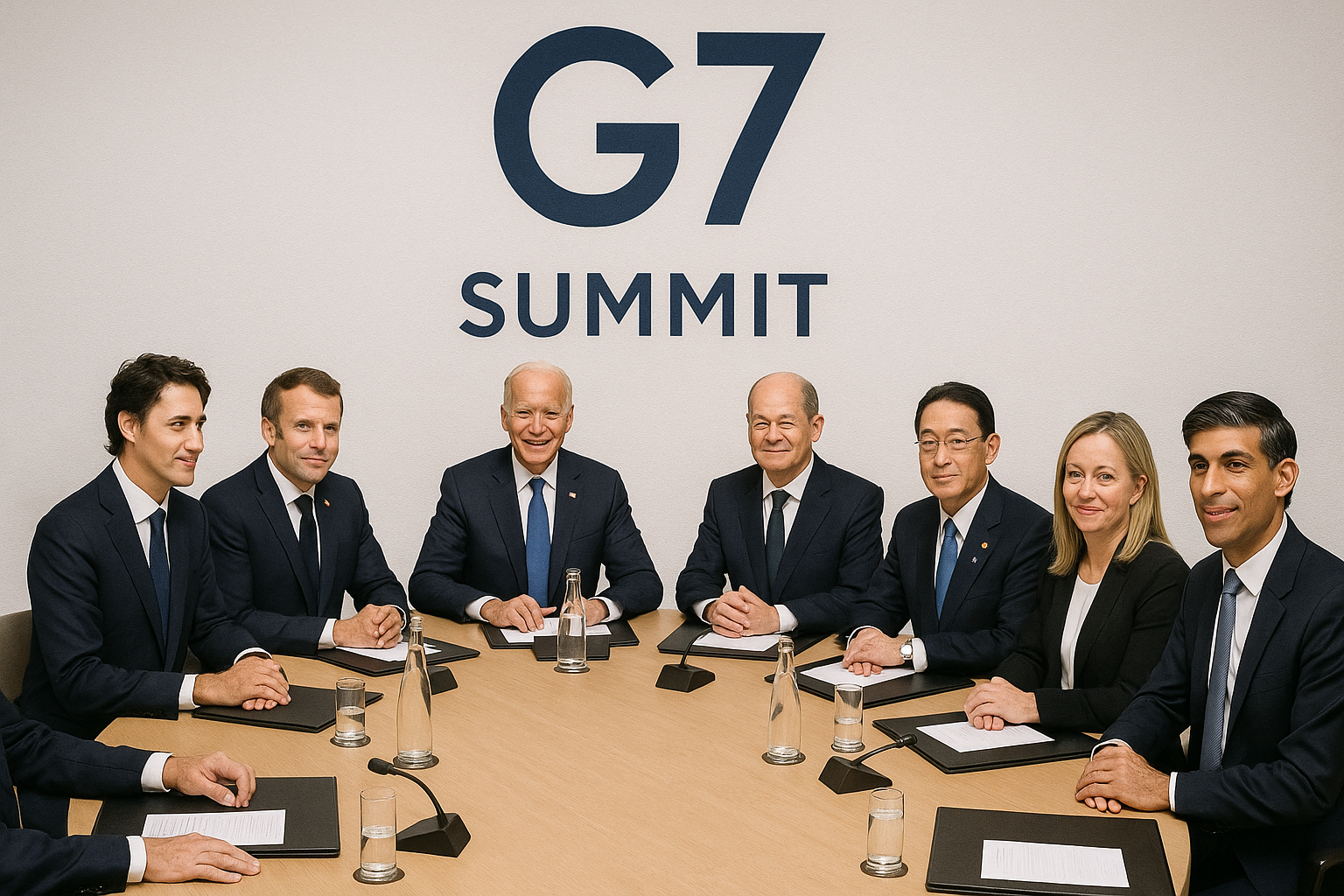G7 SUMMIT: A COMPREHENSIVE OVERVIEW OF THE GLOBAL ECONOMIC FORUM
WHAT IS THE G7 SUMMIT
The G7 Summit, short for Group of Seven Summit, is a high-level meeting of the world’s seven most advanced economies: Canada, France, Germany, Italy, Japan, the United Kingdom, and the United States. The European Union also participates as a non-enumerated member. These countries represent more than 40% of global GDP and play a pivotal role in shaping international economic policies.
ORIGIN AND HISTORY OF THE G7
The G7 was established in the 1970s as a response to the oil crisis and financial turmoil of that decade. Initially founded as the G6 in 1975, it included France, West Germany, Italy, Japan, the UK, and the US. Canada joined in 1976, forming the G7. The European Union has been involved since 1977.
Over the years, the summit has evolved from focusing solely on economic issues to addressing a wide range of global challenges, including climate change, security, public health, and technological innovation.
G7 SUMMIT 2025: WHAT TO EXPECT
The 2025 G7 Summit is expected to be hosted by Canada, following the rotation pattern among member countries. Key agenda items likely include:
Global economic recovery
Climate action and sustainability
Energy transition and security
Digital transformation and AI regulations
Geopolitical stability, especially regarding conflicts and tensions in Eastern Europe and the Indo-Pacific
Healthcare and pandemic preparedness
These issues are increasingly interconnected, making the G7 an essential forum for global cooperation.
WHY THE G7 SUMMIT MATTERS
The decisions made during the G7 Summit have far-reaching implications. Key impacts include:
Economic Policy Coordination
Geopolitical Influence
Climate and Environment Commitments
Public Health Leadership
CHALLENGES FACED BY THE G7
Despite its importance, the G7 faces criticism and challenges:
Lack of Representation: Major emerging economies like India, China, and Brazil are not permanent members.
Internal Divisions: Divergences among member states can delay decisive action.
Declining Influence: The rise of the G20 and BRICS has somewhat overshadowed the G7.
To remain relevant, the G7 must adapt to shifting power dynamics and strive for inclusivity.
KEY TAKEAWAYS
The G7 Summit is a premier forum for global economic and political dialogue.
It addresses not just economic issues but also climate, security, and digital transformation.
The outcomes of each summit influence global agendas and policymaking.
FREQUENTLY ASKED QUESTIONS (FAQs) ABOUT THE G7 SUMMIT
Q1: What does G7 stand for?
G7 stands for Group of Seven, referring to the seven major advanced economies.
Q2: Which countries are in the G7?
Canada, France, Germany, Italy, Japan, the United Kingdom, and the United States. The European Union also participates.
Q3: How often is the G7 Summit held?
It is held annually, hosted on a rotating basis by each member country.
Q4: What is the difference between G7 and G20?
The G7 comprises advanced economies, while the G20 includes both advanced and emerging economies, making it more representative of global GDP and population.
Q5: Who attends the G7 Summit?
Leaders of the G7 nations, along with the President of the European Commission and the President of the European Council.
Q6: Why is the G7 important for India?
While not a member, India is often invited as a guest due to its rising geopolitical and economic significance.







